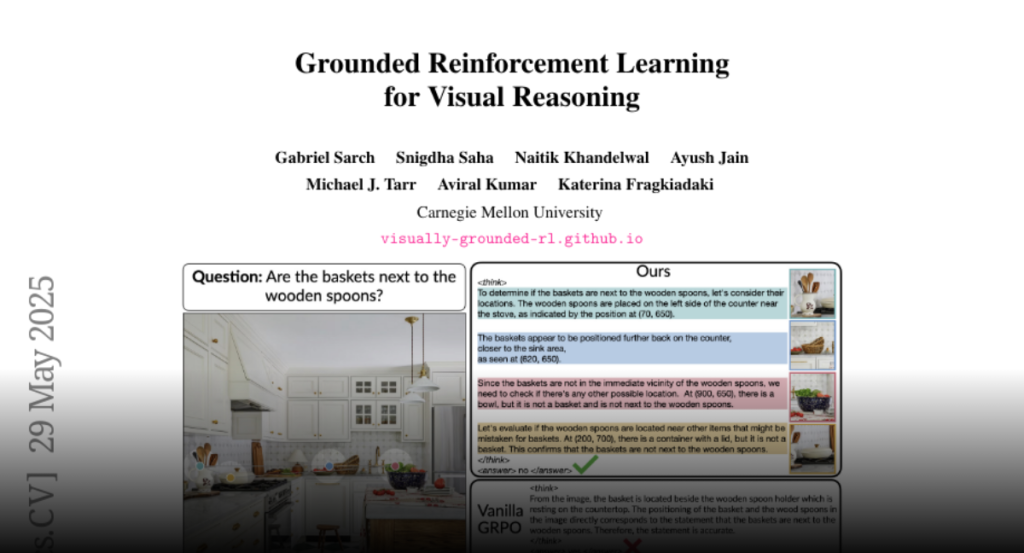ViGoRL, a vision-language model enhanced with visually grounded reinforcement learning, achieves superior performance across various visual reasoning tasks by dynamically focusing visual attention and grounding reasoning in spatial evidence.
While reinforcement learning (RL) over chains of thought has significantly
advanced language models in tasks such as mathematics and coding, visual
reasoning introduces added complexity by requiring models to direct visual
attention, interpret perceptual inputs, and ground abstract reasoning in
spatial evidence. We introduce ViGoRL (Visually Grounded Reinforcement
Learning), a vision-language model trained with RL to explicitly anchor each
reasoning step to specific visual coordinates. Inspired by human visual
decision-making, ViGoRL learns to produce spatially grounded reasoning traces,
guiding visual attention to task-relevant regions at each step. When
fine-grained exploration is required, our novel multi-turn RL framework enables
the model to dynamically zoom into predicted coordinates as reasoning unfolds.
Across a diverse set of visual reasoning benchmarks–including SAT-2 and BLINK
for spatial reasoning, V*bench for visual search, and ScreenSpot and
VisualWebArena for web-based grounding–ViGoRL consistently outperforms both
supervised fine-tuning and conventional RL baselines that lack explicit
grounding mechanisms. Incorporating multi-turn RL with zoomed-in visual
feedback significantly improves ViGoRL’s performance on localizing small GUI
elements and visual search, achieving 86.4% on V*Bench. Additionally, we find
that grounding amplifies other visual behaviors such as region exploration,
grounded subgoal setting, and visual verification. Finally, human evaluations
show that the model’s visual references are not only spatially accurate but
also helpful for understanding model reasoning steps. Our results show that
visually grounded RL is a strong paradigm for imbuing models with
general-purpose visual reasoning.

